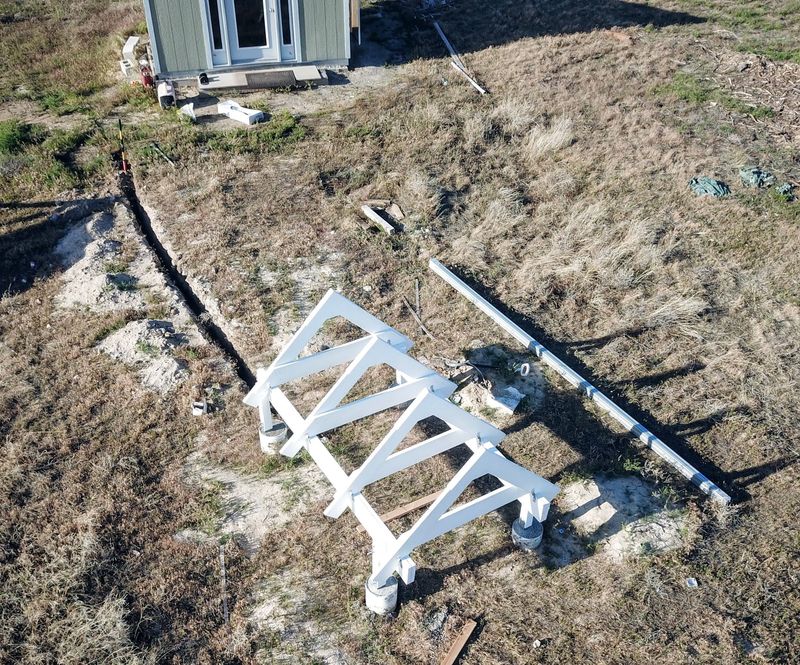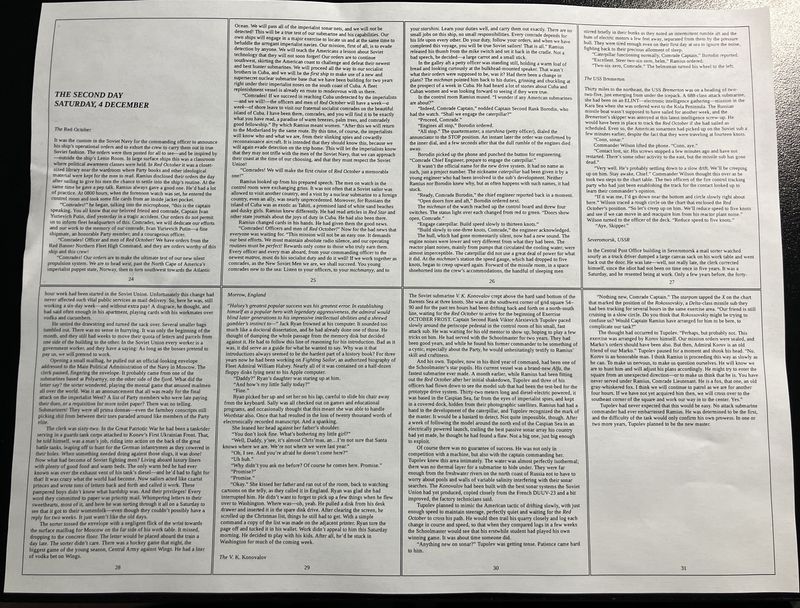Happy 4th of July! Freedom! Fireworks! America!
Or, at least, that’s what it used to be. This year? Fireworks, if you’re lucky. Parades seem unwise. People? Best avoided. America? Well… we’re having a rough year.

What better way to celebrate the birth of a country than to discuss it’s death?
America as an Empire
Mention America as an empire, and you’ll get pretty much universal pushback. Dive into a few details, and you’ll get a finely focused “Well, yeah, but, see, we’re really not, because…”
America has troops and military hardware stationed…. well, almost entirely around the world.
We suck raw materials and product wealth from… well, yeah, an awful lot of the world.

We impose our will (“Do what we say or we’ll {impose sanctions, bomb democracy into you}!”) on… yeah. Quite a bit of the world, really.
Pick your nits, or quibble as you must, but the reality seems to be that America behaves an awful lot like an empire. We use other countries to pump their wealth into our nation, and basically act like we’re the center of the world, love us or hate us, you can’t ignore us. Until you can. And, hey, look at how a lot of the world is ignoring us now. Not so good if you’re interested in the dollar as more than tinder.
But it’s worse. We’re an old empire. Empires pretty reliably last about 250 years, and, well, 2020 - 1776 is a very uncomfortable 244 years.

Nations rise and fall. Empires rise and fall. The individual stories differ, but the patterns remain constant over time - including every empire insisting, to anyone who will still listen, that this time is different. This empire will last forever! We’ve got smartphones.
Still don’t believe me? Sir John Glubb write The Fate of Empires and the Search for Survival back in the late 1970s after quite a long career doing research on empires. There are some patterns - and we see them repeating, again, in our time. Read it. It’s fairly short, and suggests that, yes, we’re absolutely on the empire rails, and pretty far along.
No. Seriously. Read it.
Polarization
Either you’ve noticed that the modern world is becoming rather radically polarized, or I need to learn from you how to better live under a rock.
Unfortunately, this sort of thing is a reliable characteristic of an empire in decline. Politics moves from “solving problems together” to “blaming the other team.” Historically, one could disagree with someone’s politics and still be friends. As we’ve moved forward in time, in the US at least, this has moved to “If I disagree with you over relatively small issues, I want nothing to do with you, you’re dead to me.” This isn’t the most productive way to resolve differences, but it’s certainly common.
Unfortunately, history tends to indicate that this quirk doesn’t resolve. Even when the literal enemies are at the gates, far enough down the slope of decline, the concern isn’t “How can we come together to fix this?” - but, “How can I blame my opponents for this disaster?”

Don’t believe me? Look at how the response to Covid-19 has been turned into political signaling, sport, and blaming the other side for… whatever you can get away with. Facts? Data? People who’ve spent the last 30 years of their life studying this stuff? Whatever. They don’t know what they’re talking about. Look, you really need to watch this video on YouTube…
Based on what we know, and what’s worked in other countries (wear a mask, keep your distance, maybe don’t reopen the nightclubs), we could have, as a nation, mostly reopened things, kept viral spread down, and been “kinda sorta back to normal” - except, the polarization has eliminated that option. So, we’re going to suffer through a year or two of open again, closed again, constantly shifting rules, and all the chaos that causes.
Dumping Liquid Oxygen on the Fires That Divide Us
We’ll see how things shake out in the history books, but I’m perfectly happy to point a finger at a handful of social media companies (Facebook and Twitter) and suggest that they’ve really helped drive the polarization. They profit from people staying on the platform longer, and we’ve known about the problems with group polarization for decades now. In a nutshell, if you put a group of people together who all think alike, that group will tend to drift to a more extreme set of viewpoints, rather rapidly. There are a variety of causes, bit it’s a quite consistent pattern one can observe.
Of course, the social media companies figured out that people really like having an echo chamber (where everyone thinks you’re awesome), and that opposing viewpoints are mostly good for mocking how dumb those people are. Turns out it’s really bad for society, but it’s also really good for keeping people on the platform, so they can sell more ads, and make more money.

Ruin society? Sure, but a few people got really, really rich. Totally worth it. Our society was polarizing already, but in the past decade, social media, as implemented, just poured liquid oxygen on it and drove it as hard as they could.
Fixing the worst evils of social media wouldn’t actually be that tough, either. Eliminate the ability to repost someone else’s content (in whatever forms that takes on the platform), require people to write out their status updates instead of just reposting that which gets the proper dopamine hit, and keep things mostly chronologically ordered instead of “slot machine ordering,” where you get something different every time you pull the lever.
But that would reduce time spent on the platforms, and, well, can’t have that, can we?
Expect social media to become increasingly viewed as the toxic cesspool that it is - except for those who are happily spending every free minute “engaged” (addicted), turning their eyeballs into another wad of cash for the executives.
Uselessness: No, We Don’t “Come Together”
You might have seen the sentiment expressed, “Well, yeah, stuff is bad now, but if something really bad happens, we’ll all pull together and solve it!”
May I suggest that Covid-19 is “something really bad,” and that, no, we’ve done a terrible job of coming together to solve it? We’ve turned it, like everything else lately, into a political football, mostly immune to facts. And we’ve not at all come together to solve the problem in the US. At this point, it’s a safe bet that we won’t. The polarization just doesn’t resolve.
And we’ll see this in a variety of other areas. One of the common traits in a late stage empire Glubb identified is that the culture switches from a culture of action to a culture of debate. If the infrastructure is falling apart, well, it’s more important to debate what ought be done, and whose fault it is, than it is to actually fix the problem.

Again, this is a safe bet to rely on going forward. Instead of doing something, we’ll endlessly debate how we ought to do it - until it’s too late to actually do anything. We’ll be standing around discussing whose fault it is that the tunnel is collapsing, as it just comes down around us.
What Should We Expect?
If your hope is that, if only we elect the right person, we can reverse this decline and regain our power as an empire, I’ve got really bad news. A long history of empires says, “Not gonna happen.” The arc of empires is remarkably constant across all of recorded human history, despite massive differences in styles of government, transportation speed, empire span, etc. It’s the sort of arc that just seems to be an outcome of human nature - and the American empire is filled with humans. I’ll argue that it’s safe to assume we’ll have the same general outcome. We’re on the way down, and nothing is going to reverse that.
The political polarization and gridlock? It won’t resolve. It will keep getting worse. You thought the 2016 elections were bad? They’ll keep getting worse.

Coming together to do things as a nation? It won’t happen. It’s not happening, and it won’t happen in the future.
And, eventually, the federal structure will crumble. It may be gradual, or it may be sudden - but, at some point, people will wake up and realize that their regions are on their own.
Usually, empires go one of two ways: They get overrun by another group from outside, or they fragment into regional nation-states. It’s fairly unlikely that the US will be overrun, so the best bet is a fragmenting into regional culturally similar groups. Note that I did not say states.
Eastern Washington and Oregon have far, far more in common with Idaho, Wyoming, and Montana than they do with the part of the state west of the Cascades (Seattle, Portland, and so on down the coast). Portland and Seattle are likely to find themselves in one regional alliance, the mountain west another, and so on across the country.

Our infrastructure will probably keep coming apart. Some areas will keep it together, some won’t. As much as it pains me to say, I expect we’ll see rural de-electrification in some areas in my lifetime.
How well are you able to deal with that? You’ve just had a chance to find out!
The Co(vid)lapse: How did you do?
How did you handle stuff with everything shut down for Covid this year? Smooth sailing, rough patches, absolutely horrible, ?
Think of it as a test run for the sort of stuff we’ll have ahead. Getting out less, supply chains simply not working, shipping delays. How did it go?
I’ll suggest that anything relying on a “Just in Time” sort of supply chain (which is to say, “literally everything these days”) is going to have problems going forward. Do you have the ability to survive supply chain disruptions for a while? If not, you might consider thinking through it.

More importantly, Covid is a perfect example for what we’ll find in end of empire: Unexpected, halfway nonsensical events that have reasonably predictable outcomes (“shit doesn’t work as expected”). Just having some extra stocks of stuff you use regularly on hand solves a lot of problems. You can’t predict what will happen, but, like an emergency fund, you can predict that something is likely to happen. Having a few months of critical supplies on hand really reduces the stress of dealing with it!
Getting By With LESS: Less Energy, Stimulation, and Stuff
A very, very useful Greerism (John Michael Greer - The Archdruid Report, Ecosophia, etc) to think about is that the future will require getting by with LESS: Less Energy, Stimulation, and Stuff. We just won’t have as much - and we almost certainly won’t have the sort of super high stimulation entertainment we take for granted today. How would you handle a period without internet? Without power? With less power?
There are an awful lot of things we can be doing now to prepare for those times, and I’ll argue that quite a few of them have benefits in the here-and-now, not just the times to come. Think through activities you could do by lantern light, and you’ll probably have a good list of activities you might want to consider learning to enjoy. Books, board games, letter writing, playing musical instruments - all of this will still exist. Massively multiplayer online 4k gaming? Maybe less so.
What can you do with a small, cheap computer? Quite a bit, really.
Long time readers of my blog may have noticed I’ve got a bit of a thing for weird little computers. Raspberry Pis are a common one, though I’m far from limited there. At this point in my life, I just don’t see a particular point in spending large sums of money on computers when I can spend far less, and still have something that does most of what I want.

How much was your computer? What do you use it for that you couldn’t do, in some broadly comparable way, on an 8GB Raspberry Pi 4? That’s a massive amount of computer for $100-$150, depending on how you configure it and what you have laying around, and it’ll handle just about everything.
Will it play the latest and greatest AAA gaming title? Nope. Does it matter? Nope. Go play old DOS games in emulation. I assure you, Doom (or Doom II) in a dark room will still get your heart rate up! And if you really want some vintage challenge, go play through X-Wing and Tie Fighter on the hard modes. They’re challenging, engaging, and quite regularly brutally difficult. And you can play them on a Raspberry Pi! The point of games is to be an entertaining diversion, and older games are just fine on that point!

Lately, I’ve been daily driving the PineBook Pro. It’s got 6 ARM cores, 4GB of RAM, a 1080p display, cost me $200 (plus shipping), and… is absolutely fine for most of what I do. Is it as nice as a MacBook Pro? No. Is it literally an order of magnitude cheaper? Yes. And I’ll try very hard to talk about this laptop in two weeks!
Should We Leave?
Sometime around now in the conversation, the usual question comes up: “Well, should I leave? If America is on the way down, why stick around?”
This is a much harder question to answer, and it’s a very personal question - I can’t answer it for you.
What I can do is offer some of the thoughts I’ve had, and why we intend to stick around for the long haul.

My first question is, “Well, where would you go?” There are many other countries around the world. Some are easier to get into than others. A friend’s experience with Canada would tend to indicate that the usual “Why, why, if things don’t go my way, I’ll just move to Canada!” quip that’s so popular around election time involves a total and complete ignorance of what that process actually involves.
“Getting out” is possible - but certainly not as easy as most people assume, unless you’re rather well off. If you are, well, happy FIRE? Find a country that will grant citizenship for an appropriate investment in the local business economy. Good luck, have fun, drink Pepsi?
Our decisions were based heavily around wanting to actually be near family. If we moved overseas, we wouldn’t see family much, and that’s not really something we wanted. We live rather close to family now, and quite like the arrangement.

But, more significantly, we more or less welcome the challenge. There are plenty of useful things to do and skills to learn in a decline - and I enjoy many of them. Again, if you’re a regular reader, you’ve probably noticed that I care about how repairable things are - and I care a lot. This is something that matters on the way down, because something that requires an insanely complex and fragile supply chain to fix is way, way harder to keep running than something that requires a socket set and wrench. My tractor - a 1939 Ford 9N - is repairable. It was designed to be worked on by a farmer, in a field, and to be less of a pain in the donkey than a horse. Eighty years later, well… it’s still doing exactly that. I fully expect it to be chugging along long after I die. It’s well built, easy to maintain, designed to be repaired, and should long outlive the computerized, DRM’d nonsense that passes for modern tractors.

There are a lot of ways to be useful in a decline, and given how few people have that focus, it sounds like fun to me. I work, via this blog, towards simpler systems and repairable systems. I try to do the same in person, and at this point, I’m occasionally surprised that people actually listen. I’m used to being the lone voice in the wilderness, and that’s at least a hair less common lately, which is encouraging (if a bit confusing when it happens).
Basically, we’d rather work to be useful in the “evil we know.” And to try and make something out of it. I fully intend to teach my kids useful skills in that vein as well, and encourage them to be weird - to fix stuff - to build stuff - to make use of things other people have discarded as worthless. We’ll see!
Happy 4th of July!
So, happy 4th of July in a dying empire!

And, yes, I do have a new-to-me camera with a good zoom lens. Why do you ask?
Comments
Comments are handled on my Discourse forum - you'll need to create an account there to post comments.If you've found this post useful, insightful, or informative, why not support me on Ko-fi? And if you'd like to be notified of new posts (I post every two weeks), you can follow my blog via email! Of course, if you like RSS, I support that too.






